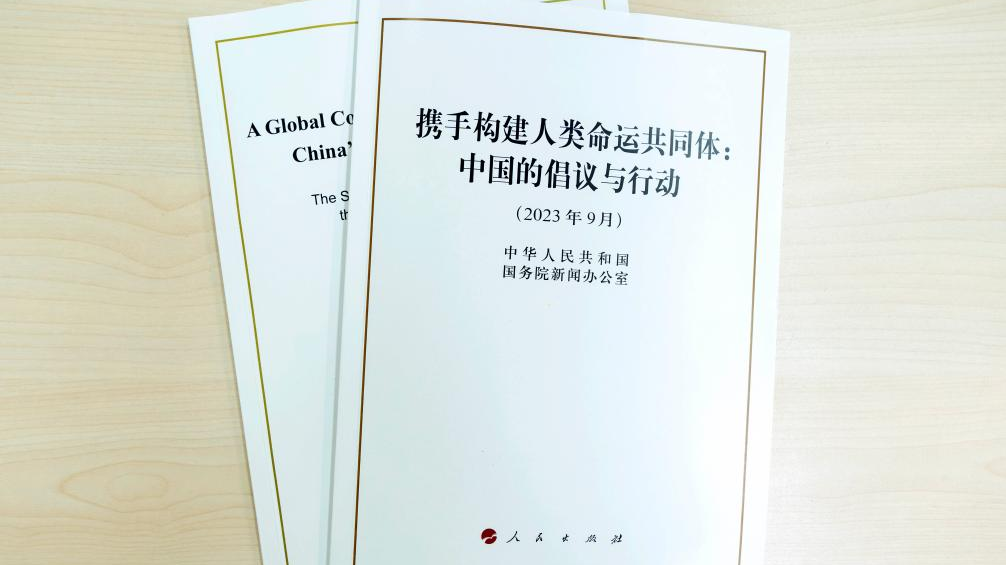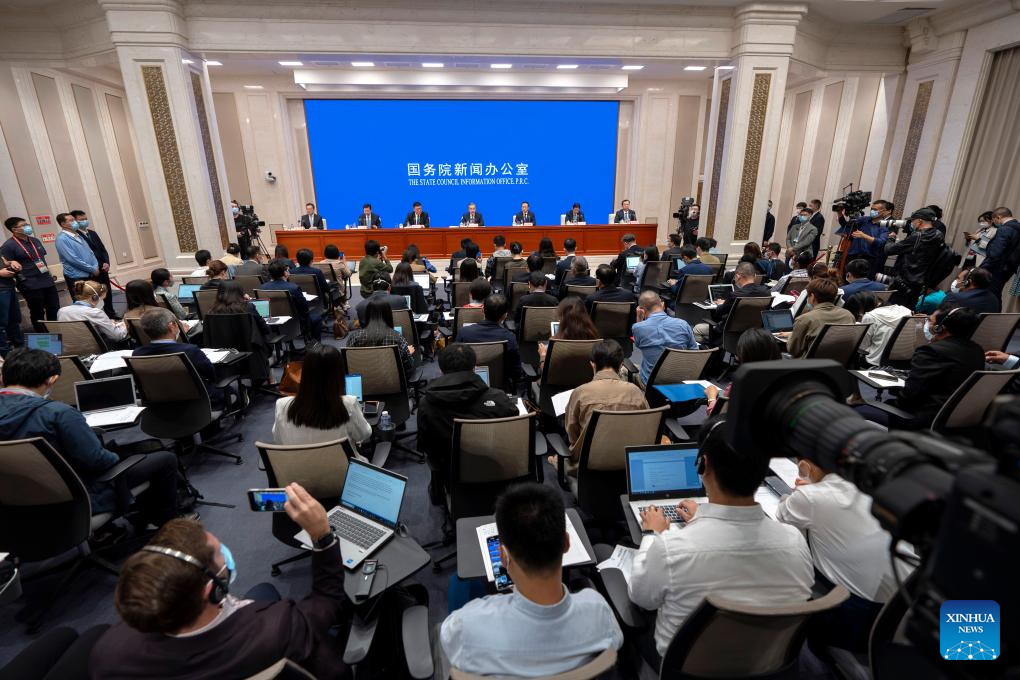
The white paper titled "A Global Community of Shared Future: China's Proposals and Actions," September 26, 2023. [Photo/Xinhua]
By Stephen Ndegwa
Even the most optimistic person cannot deny the fact that the world is currently undergoing grave challenges. Global problems have not only exacerbated, but are also increasing in number. From pollution and climate change, to economic recession and health challenges, humanity is desperate for leadership in overcoming them and moving on to a new era.
Health, for instance, which we have long taken for granted, is now one of the top global goals. Good health is invaluable to all human endeavors. According to the World Health Organization, global health expenditure was about 10 percent of global GDP in 2018. This has definitely increased after the devastating COVID-19 pandemic. As a key component in the Sustainable Development Goals, universal quality health provision is an integral factor in any plans for human development.
Global challenges have awakened people to the fact that we are living in a global village with a shared future. Traditional national or regional boundaries are not an immunity against the global malaise. In the words of former United States President Benjamin Franklin, "we must all hang together, or, most assuredly, we shall all hang separately."
In the last couple of decades, China has been at the forefront in attempts to mobilize global action against the mounting challenges by offering both its material and philosophical resources. As a way of sharing its vision and overall experiences in galvanizing practical action, the country's State Council Information Office released on September 26 a white paper titled, "A Global Community of Shared Future: China's Proposals and Actions."

A press conference on the white paper titled "A Global Community of Shared Future: China's Proposals and Actions" is held by the State Council Information Office in Beijing, capital of China, September 26, 2023. [Photo/Xinhua]
The white paper is based on several key tenets. These include the fact that globalization has become a reality and is no longer an issue of conjecture. Secondly, China's development is good for the whole world, and vice versa, due to the synergy and mutual benefits emanating from this development. Thirdly, the ingredients of making a global community of shared future include openness, inclusiveness, mutual benefit, equity and justice.
The white paper also stresses the fact that opening up is a mutual exercise, and those who demand it must lead by example. In addition, there is no one-size-fits-all model of democracy. Democracy is a problem solver, not a badge to be flaunted. Critically, all civilizations are valid and none is superior to the other.
The white paper observes that true and lasting harmony among the world's peoples calls for inclusiveness in social systems, ideologies, histories, cultures and levels of development coming together to promote shared interests, shared rights and shared responsibilities in global affairs. The fundamental and inescapable word here is "sharing."
Intercontinental projects like the Belt and Road Initiative (BRI), which was proposed by President Xi Jinping in 2013, have served to open up countries and regions to more national and regional opportunities, and for multilateral cooperation. World leaders in both public and private spheres will meet in October to celebrate the BRI's 10th anniversary and its impact in global development.
In addition to the BRI, China has come up with other "global public goods" to establish and safeguard a community with a shared future. These include the Global Development Initiative, the Global Security Initiative, and the Global Sustainable Initiative.These three non-prescriptive proposals have been adopted by China's strategic partners, while also creating new friends for the country. The intention is to give the world an opportunity to try different, albeit universal, solutions.
The improbable rapprochement in the Middle East between erstwhile foes Saudi Arabia and Iran mediated by China shows the effectiveness of the latter's geopolitical initiatives. Given a chance by the warring parties in the Russia-Ukraine conflict, "China's Position on the Political Settlement of the Ukraine Crisis" could be a game-changer simply because it a neutral, objective and far-reaching strategy for long term world peace.
All these proposals and actions for global development are aimed at promoting sustainable development, and not positioning the country for hegemony. The few misgivings about China's intentions are propagated by a cabal of Western powers who feel that they are losing their long-held unfair edge in keeping the rest of the world captive to their whims.
Indeed, China's mainstreaming of the Global South has created a healthy balance of power with the Global North. The country's leadership role in groups like the recently expanded BRICS – Brazil, Russia, India, China, South Africa, Argentina, Egypt, Ethiopia, Iran, Saudi Arabia and the United Arab Emirates – and the G77+China has increased and expanded the voice and visibility of developing countries in global affairs. It is no longer "business as usual" as multipolarity edges out unilateralism.
For a global community with a shared future to be realized, all countries must adopt the principal of non-interference in each other's internal affairs. This is the mantra that should inform both bilateral and multilateral relations. The rules-based international order should be the basis of international conflict resolution and peace building. No single country, no matter how powerful, should purport to have a monopoly on justice by imposing its opinions or will on others.
Stephen Ndegwa, a special commentator on current affairs for CGTN, is the executive director of South-South Dialogues, a Nairobi-based communications development think tank.

 中文
中文



